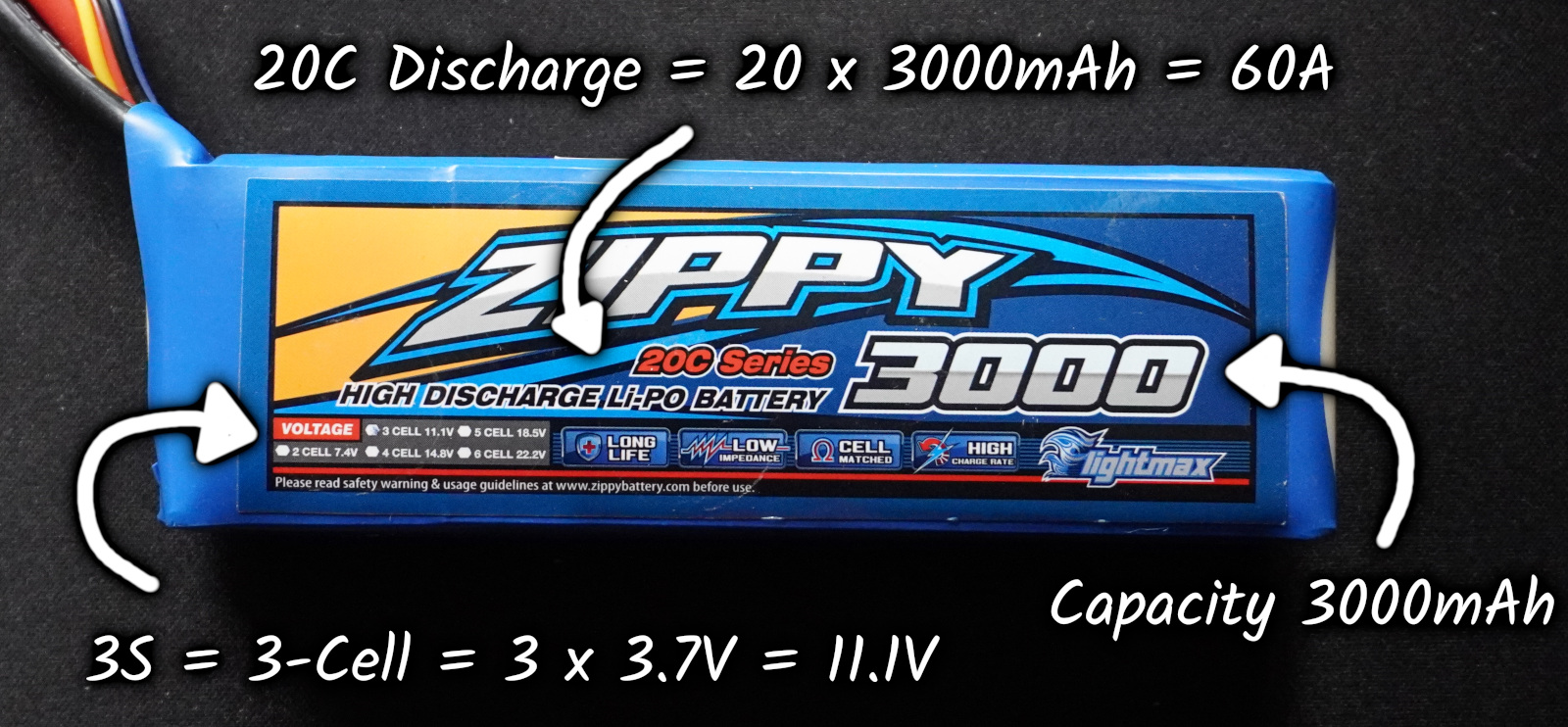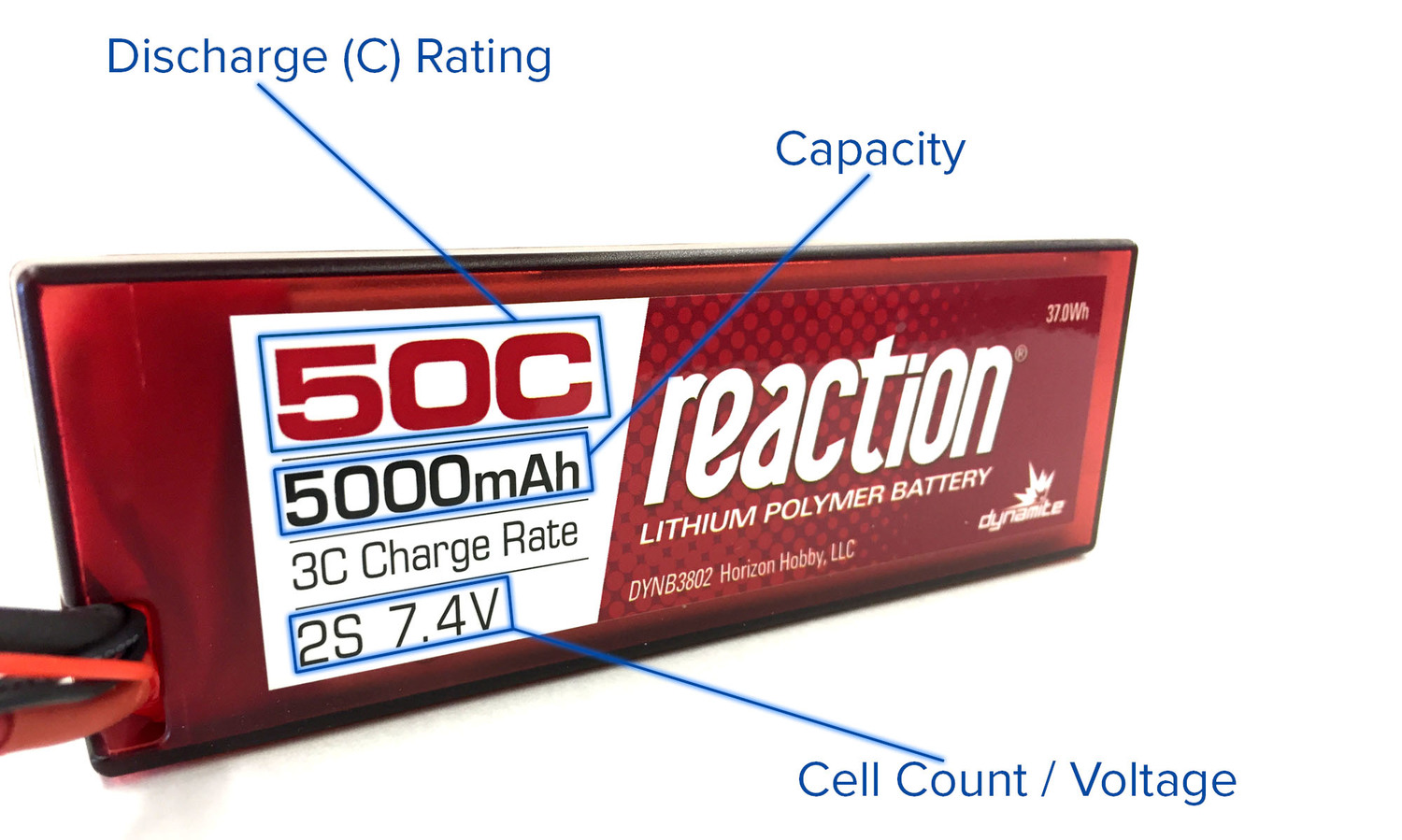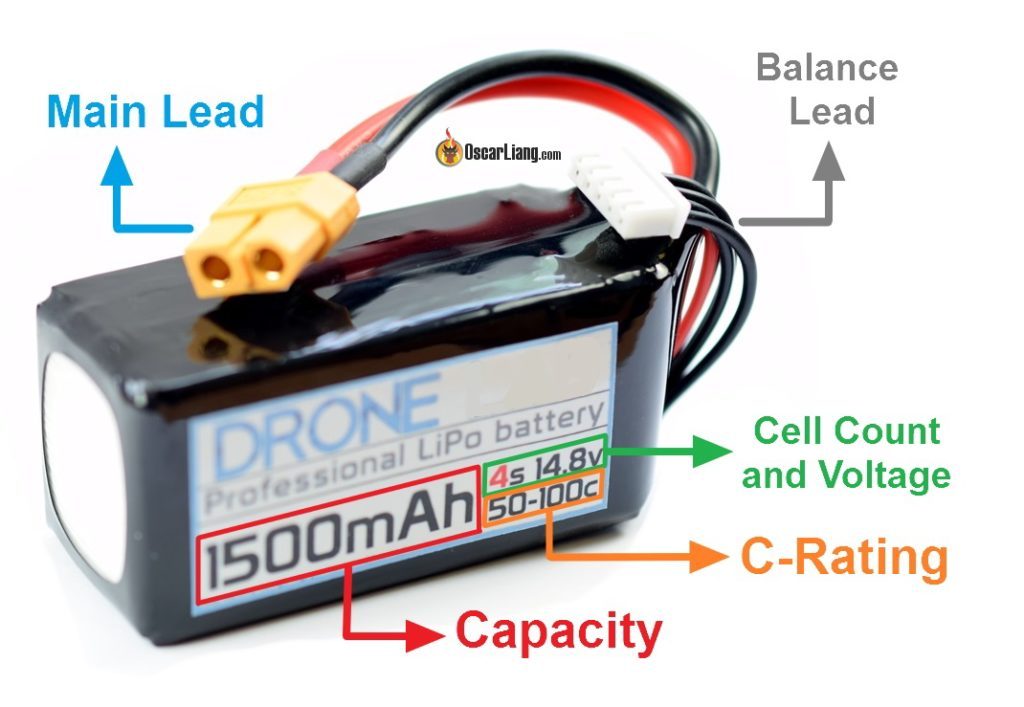LiPo Battery
Resources

- The S number = number of cells in the battery. The battery you buy is actually a bunch of smaller cells joined together to increase the voltage
- 3S battery = 3 cells
- Discharge Rating (“C” Rating) = measure of how fast the battery can be discharged safely and without harming the battery.
Here’s another picture

C-Rating (Amperage)
The maximum current draw (in amps amperage) is calculated simply by
Maximum Current Draw = C-Rating x Capacity
Calculating the C-Rating for the battery above: 50C x 5A = 250A
More cells = more voltage, since with LiPo, it’s only 3.7V per cell. However, since they are connected in series, the voltage adds up
For my Traxxas Battery
I have a 5000mAh battery with 25C rating. The continuous discharge rate would be 125 amps. Burst discharge rating is ??
Battery Voltage
Higher voltage batteries allow your motors to produce more power, however they’re heavier since they contain more cells.
Look at the specs for what a motor can handle. Motors are generally more efficient and powerful when using higher cell count lipos (higher voltage), but some of the efficiency bonus is negated by the increase in weight and cost of the battery.
I really need to read up this: https://traxxas.com/support/traxxas-battery-basics
Links
- https://www.rogershobbycenter.com/lipoguide
- https://genstattu.com/bw/#
- https://traxxas.com/support/traxxas-battery-basics
How To Change Lipo Battery Connectors SAFELY
Purchasing a motor
- https://www.reddit.com/r/rccars/comments/hhro5t/best_rc_lipo_battery_for_2020/
- https://things-in-motion.blogspot.com/2018/12/how-to-select-right-power-source-for.html
- This was linked from ODrive docs
Balance Lead
LiPo batteries with more than one cell will always have a balance lead, which is for monitoring and balancing cell voltages. The official name of the balance connector is JST-XH.

Traxxas Batteries don't seem to have a balance lead??
Traxxas batteries use a proprietary connector called the “High-Current Connector” (or “Traxxas Connector”) that combines the power and balance connections into a single connector.
this means Traxxas batteries are not compatible with non-Traxxas chargers that require a separate balance connector.
Why do they swell up over time?
Source: Why Do Li-Po Batteries Swell Up? 😮😮😮 - YouTube by Electronoobs
LiPo batteries go through a process called Electrolyte Decomposition, in which there is production of CO2 and Oxygen.
This is a natural phenomenon, but very slow. Such as storing in super hot temperature, this process may be drastically accelerated.
Afterwards, it may become super dangerous as these batteries become super flammable, so one must carefully store them into their natural state.
